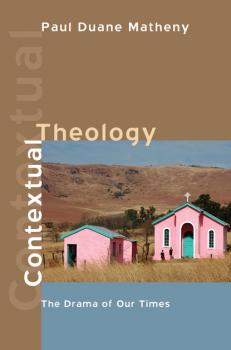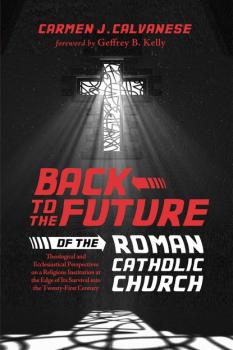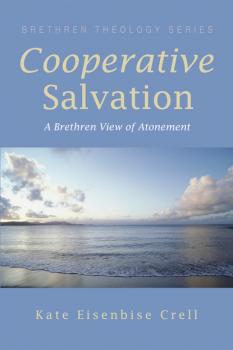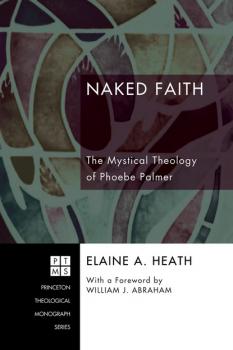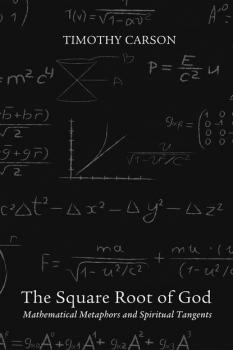ТОП просматриваемых книг сайта:
Словари
Различные книги в жанре Словари, доступные для чтения и скачиванияАннотация
Readings in Catholic School Social Teaching: Selected Documents of the Universal Church, 1891-2011 is a curated collection of readings that form a short summary of the universal Catholic social teaching ranging between Pope Leo XIII's 1891 Rerum Novarum and Pope Benedicts XVI's 2011 pontificate. Organized in seven chapters according to general topics related to social justice, each section includes excerpts from notable Catholic documents, particularly papal encyclicals and documents of the Second Vatican Council. This material not only invites readers to delve deeper into the vast and growing treasury of such writings, it also inspires by encouraging thoughtful discussion for better understanding the contemporary value of the documents and serves as a tool for both prayerful reflection and academic inquiry.
Аннотация
This work models a creative exercise in ecclesiology based on a Latino/a practical theology of the Spirit, which designs theological discourse based on its encounter with the Spirit in human culture. Hence, it is a theology appreciative of and attentive to the «multiple matrices and intersections» of the Spirit with cultures. Garcia-Johnson offeres an appreciative and critical analysis of the uses of culture among Latino/a theologians, followed by the proposal for a postmodern Spirit-friendly cultural paradigm based on the narratives of the cross and the Pentecost. He develops a practical theology for a Latino/a postmodern ecclesiology based on three native Latino/a theological concepts: mestizaje, accompaniment, and manana eschatology. The resulting ecclesial construct-The Mestizo/a Community of Manana-reflects a transforming manana vision and models the visible cruciform community in which the transforming praxis and historical transcendence of the Christ-Spirit works from within. The work sets forth practical guidelines for implementation of the ecclesial construct in the urban context of devastated communities and offers suggestions for further development in Latino/a theology.
Аннотация
The last decade or so has seen many books from what might be called «the new atheists.» One thinks, for example, of Richard Dawkins or Christopher Hitchens. They have captured the interest of the general reading public and have sold well. Often, however, they have loaded the dice against Christian belief in a most unfair fashion. Arguments and issues have been summarily dismissed after the most cursory of treatments. Thinking God, written by a philosopher and a theologian, father and son, invites the reader to a more reflective consideration of the issues around God and the traditional fabric of Christian belief in a fair and openhanded fashion. Issues, both traditional and more contemporary, have been engaged. The result is an invitation to think of Christian faith seriously, reflectively, and critically.
Аннотация
It has been almost fifty years since theological educators first began talking about contextual theology. Today, in every country of the global South, their home schools require them to contextualize theological education and construct contextual theologies that would be helpful for their local churches. In spite of this expectation there are few helps available. The expectation is clear, but an understanding of the process by which this may occur is lacking. Educators often complain that they are led to adapt Western theology to their context rather than developing theology for their churches. Arguments for contextual theology are proposed often, but there has been little debate explaining and defending the methods involved. This book is intended to enter that debate and invite others who should help appreciate the gravity of our situation and join the conversation.
The epicenter of Christianity has shifted to the global South. Yet, contextual theology, which seeks to preserve the integrity of the faith, has not been met with generosity among scholars in the US and Europe. This book intends to forge helpful bridges that encourage mutual regard to develop among scholars across the globe. The bubble of the Western academy needs to be breached.
The epicenter of Christianity has shifted to the global South. Yet, contextual theology, which seeks to preserve the integrity of the faith, has not been met with generosity among scholars in the US and Europe. This book intends to forge helpful bridges that encourage mutual regard to develop among scholars across the globe. The bubble of the Western academy needs to be breached.
Аннотация
This book explores the notion that the Roman Catholic Church risks imploding from within as a result of its inflexibility towards movements in favor of reasonable change and modernization. Attendance at Sunday Mass has dramatically decreased; the loss of the youth in these churches is a case in point. At the same time, the lack of vocations to the priesthood and religious life is at crisis proportions as is further evidenced by the closing of parishes and the curtailing of religious services including the rising phenomenon of «priest-less Parishes.» Young men today–even if they aspire to the priesthood–experience both unrest and rejection at the continued demand of the Church's leadership that priests commit themselves to the lifelong discipline of celibacy.
Back to the Future of the Roman Catholic Church addresses the root causes of the various developments that have provoked discontent with Church policies and defections from parish life on the part of those who appear to have lost faith in their hierarchical leaders at the highest levels of Church governance. Finally, this book probes the ways in which the Church can emerge from its crises to become, once again, faithful to its origins as founded by Jesus Christ.
Back to the Future of the Roman Catholic Church addresses the root causes of the various developments that have provoked discontent with Church policies and defections from parish life on the part of those who appear to have lost faith in their hierarchical leaders at the highest levels of Church governance. Finally, this book probes the ways in which the Church can emerge from its crises to become, once again, faithful to its origins as founded by Jesus Christ.
Аннотация
Why did Jesus die? What does it mean that Jesus died for our sins? Christian theology has been wrestling with these questions for centuries, and theologians have proposed lots of different answers and explanations in the form of theories of atonement. But most of these theories fall short when confronted by a contemporary, postmodern worldview. Many of these models come out of orthodox (rather than Free Church) traditions, so they also lack the distinctive elements that characterize Brethren ways of understanding God and the world. The Church of the Brethren is well known for its acts of service and discipleship in the nonviolent model of Jesus, but it has not produced much constructive theology. Cooperative Salvation attempts to remedy this situation by proposing a constructive Brethren model of atonement. It analyzes the diverse atonement models proposed throughout the Christian tradition, noting where they prove inadequate. To address the shortcomings of other models, this work draws on important claims of historical Anabaptist and Brethren theology while also incorporating ideas from feminist, liberation, and process theology in order to construct an understanding of atonement that contributes a contemporary Brethren voice to the centuries-long discussion of atonement.
Информация о книге
Автор произведения Kathryn S. Eisenbise
Жанр Словари
Серия Brethren Theology Series
Аннотация
Now and then through the history of the church a great light appears, a prophet who calls the church back to its missional vocation. These reformers are lovers of God, mystics whose lives are utterly given to the divine vision. Yet as Jesus noted, a prophet is often without honor among her own people. In the case of Phoebe Palmer (1807-1874), honor was lost posthumously, for within a few decades after her death her name all but disappeared. Palmer's sanctification theology was separated from its apophatic spiritual moorings, even as her memory was lost. Throughout most of the twentieth century her name was virtually unknown among Methodists. To this day the Mother of the Holiness Movement still awaits her place of recognition as a Christian mystic equal to Catherine of Siena, Teresa of Avila, or Therese of Lisieux. This book locates Palmer's life and thought within the great Christian mystical traditions, identifying her importance within Methodism and the church universal. It also presents a Wesleyan theological framework for understanding and valuing Christian mysticism, while connecting it with the larger mystical traditions in Catholic, Anglican, and Orthodox communions. While Palmer was a powerful revivalist in her own day, in many ways she could be the patron saint for contemporary Methodists who are drawn to the new monasticism and who long for the renewal of the church. Saint Phoebe is precisely the one who can help Methodists envision new forms of Christian community, mission, and witness in a postmodern world.
Аннотация
Perhaps the most critical issue for healthy, growing churches is member care or life together, in keeping with the biblical emphasis on allalon–"one another." Member care demands that believers be passionately concerned for one another's spiritual welfare and physical and social well-being. This mutual care may be expressed in different ways, but they are always to be directed to the needs of the members of the body of Christ. That is the approach taken by the author of this book, which focuses on what may be construed as a negative subject–discipline. The hope is that a careful reading will reveal that Christian discipline, seen holistically, may be a most rewarding ministry, one that brings many benefits to healthy, growing churches as it nurtures loving relationships among people who care enough to speak the truth with love, as Jesus did.
Аннотация
This provocative exploration of faith and numbers provides a whole new way to understand the mystery of God and the universe–a must-read for both spiritual individuals in search of relevancy and curious skeptics willing to entertain a new way to approach the most basic questions of life.
Аннотация
Clear and Definite Words is a lucid exposure of the present confusion within theological discourse. It charges and proves that avoiding or equivocating on the question of ontology is impossible. It thus undermines the premise of much theological discourse today and lays the way for greater theological clarity and commitment. This book goes head-to-head with great forcefulness and passion against anyone and anything that has served to impede the right of theology to speak with clear and definite words.




